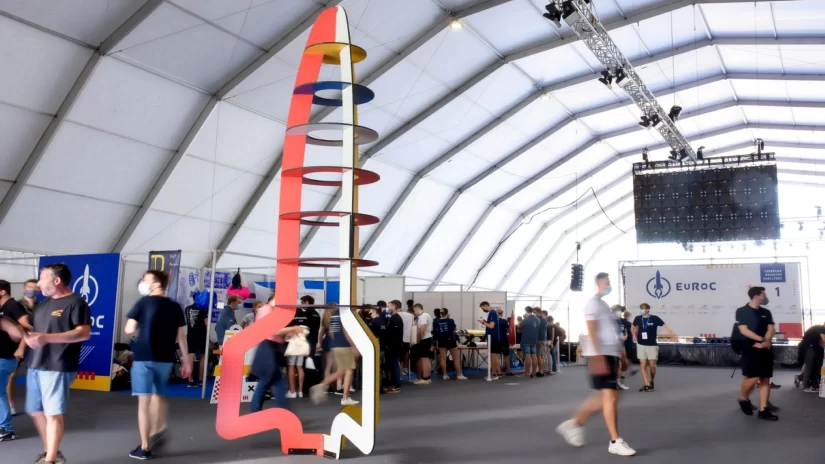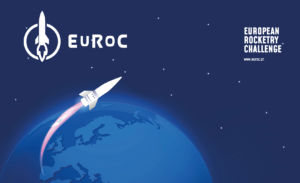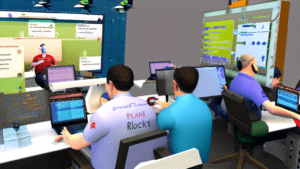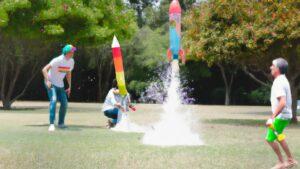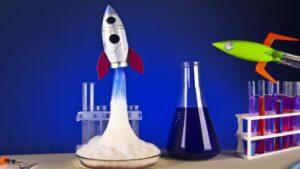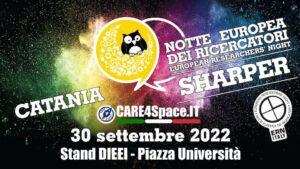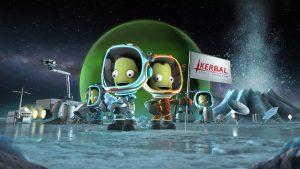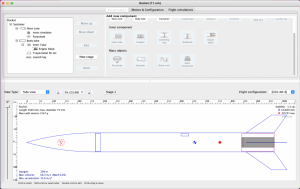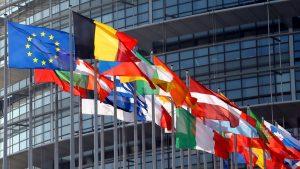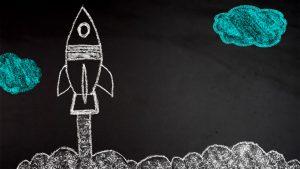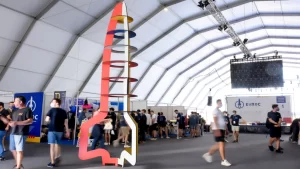🏆 EuRoC European Rocketry Challenge
Organized by the Portuguese Space Agency, EuRoC is a challenge, hosted in the Municipality of Ponte de Sor, which seeks to stimulate university-level students to fly sounding rockets, by designing and building the rockets themselves. EuRoC is held annually in mid-October, in Portugal in Pont de Sor, and is inspired by the SAC Spaceport America Cup, which until last year was the only student rocketry competition in the world.
EuRoC goals 🎯
- to develop soft skills, technological skills, and a propensity for innovation
- stimulating the meeting between high-tech and aerospace companies, academics, and young people from all over the world
- to attract and involve national and international partners in supporting the expansion of the aerospace industry, with a particular focus on the emerging new formats of the so-called “NewSpace”.
- promote innovation and competitiveness in the sector, contributing to the creation of highly qualified jobs.
- Motivate and encourage young people to pursue careers based on Science, Technology, Engineering, and Mathematics (STEM), strengthening competencies in the area of Space through research, education, and scientific culture.

The EuRoC challenge consists of launching experimental sounding rockets designed by students to reach a predetermined altitude in different categories of height and types of engines. The score is attributed not only to the flight performance but also to the quality of the technical report and the quality of the design.
EuRoC teams shall consist of members who are currently enrolled in a Bachelor’s or Master’s degree or were matriculated undergraduate or graduate students (i.eMasters) during the previous academic year (e.former students who graduated shortly before the competition remain eligible), from one or more academic European institutions (e.g., “joint teams” are eligible). Each student team is limited to 30 members. Teams may integrate advisory members (e.g., doctorate students, professors), as long as the number of advisors does not surpass 20% of the total number of team members.
Each team is required to ask the academic institution(s), in which its members are enrolled, to provide a signed letter to EuRoC, acknowledging the team as the institution’s representative and its intention to participate in the event. The signatory shall be a senior faculty member or senior staff representative (e.g., a professor).
Below are the most significant phases with the related roadmap ⛳ and deadlines:

🏆 EuRoC Competition Categories and awards
- The Technical Award for the Best Technical Report;
- The New Space Award for the best Jury Pitch;
- The Team Award for the Best Team Effort;
- The six Flight Awards for the winners of the categories (S3, H3, L3, S9, H9, L9) for the respective best flight performance in each of these categories.
- The Payload Award seeks to recognize the team with the overall best payload of EuRoC. This award praises innovation and reliability, focusing also on the applicability and impact of the payload on society, such as if it were to be launched into space. It will be awarded to the most promising payload being only expected high expertise and singular design and implementation results.
Recognizes the best technical report, displaying the ability to document clearly, correctly, and without unnecessary complication a complex technical system, aided by high-quality figures, exhibiting exceptional quality in all formal aspects, making it an enjoyable and enriching read.
Honors the overall best design implementation, which displays a high competency in all its characteristics, is based on stringent strategic decisions, provided an exceptional challenge to realize, and might even go beyond pure rocketry to put special attention towards its innovation and/or payload.
The team has displayed an outstanding effort as working as a unit towards a common goal, by being exceptionally organized, reliable, and prepared in all aspects of the competition, be it deliverables, communication, or operation, and goes above and beyond to display a great sense of team spirit and sportsmanship.
Measures the degree of merit in meters away from the target apogee, but also by the state of the rocket after recovery, and thus honors designs that not only survive the harsh contact with reality, but furthermore represent an incredible achievement in concept, simulation, system integration, control, and practical realization.
Awarded to the team that has displayed excellence across the board in all aspects of the competition, honoring an overall exceptional and well-balanced effort without cutting back on any of one of the competition aspects, be it technical documentation, design implementation, team effort, or flight performance, thus identifying a truly remarkable effort and achievement.

